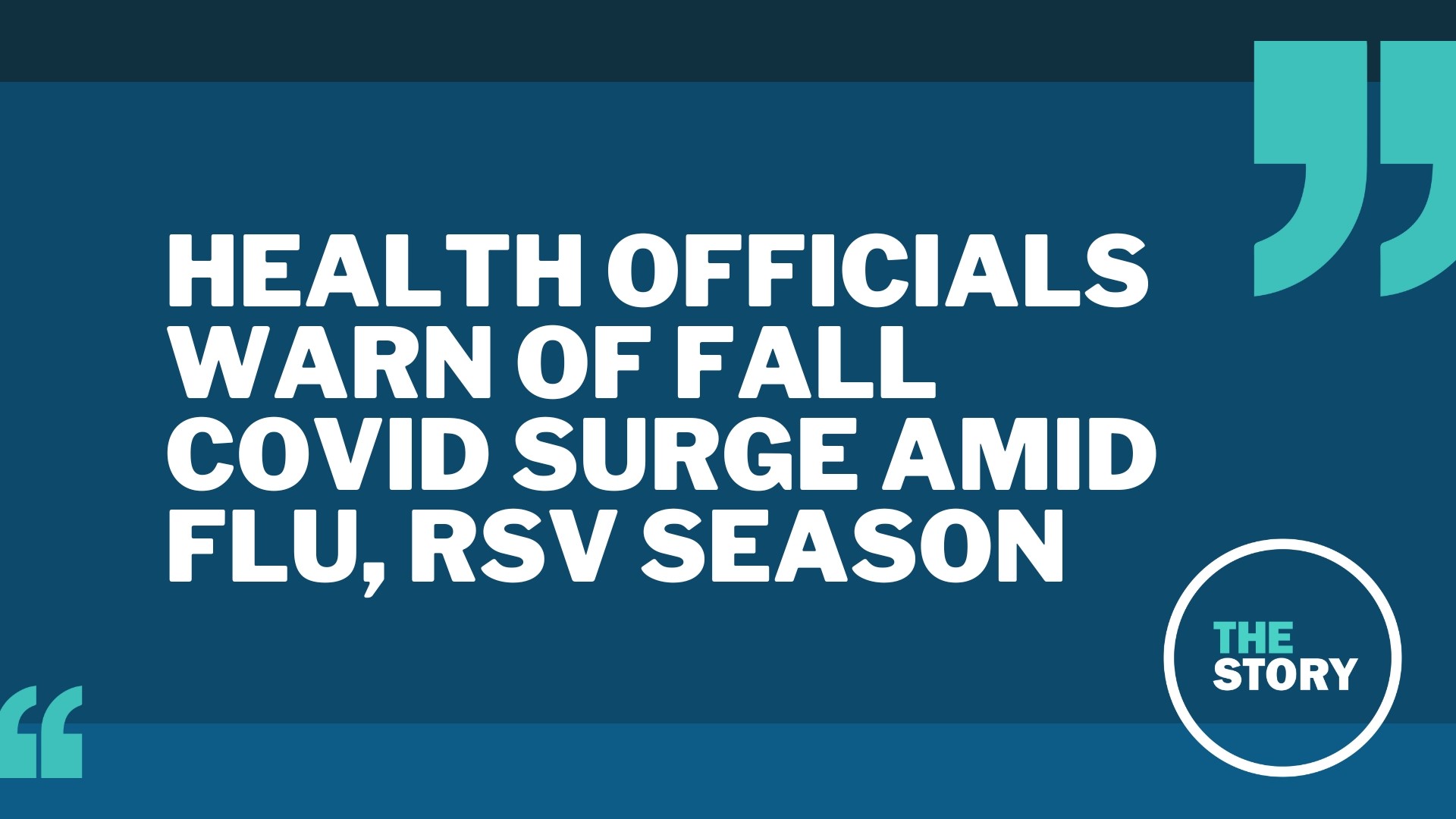PORTLAND, Ore. — The same question is on the minds of many Americans: How and when will I receive my $1,200 economic impact payment from the federal government?
And the questions don’t stop there.
“People are extremely confused,” said Sarah Lora of the Low Income Taxpayer Clinic at Lewis & Clark Law School.
Lora, who typically supports low-income taxpayers who have a contention with the IRS, is now one of the many individuals and organizations in Oregon trying to rapidly address the changing needs of low-income and no-income Oregonians.
And things are indeed changing quickly.
On April 10, the IRS introduced a new portal that allows individuals to claim their economic impact payments without filing taxes.
For folks who haven’t filed taxes and don’t plan to, this update to the stimulus package felt like a huge win.
“We didn’t know what to do for a while when it looked like the stimulus checks would only be for people who filed for taxes or receive Social Security,” said Kaia Sand, executive director of Street Roots. The organization works with nearly 200 people experiencing homelessness or poverty as part of its vendor program.
But with the creation of this new portal, Street Roots, along with many other organizations across the city, is jumping into action to find ways to make sure the people who most need stimulus checks are informed about their eligibility and are given the tools they need to file.
Alex Rodriguez is a vendor for Street Roots, but his experience has been atypical.
“My first day working with Street Roots was also the day the newspaper went entirely online. So I’ve never actually sold a newspaper,” Rodriguez said.
But his work now is all the more important.
Rodriguez is using his background in administrative work to staff Street Roots’ new makeshift clinic for economic impact payment support. Since filing requires access to a computer, an email address and a phone to receive a verification code, there are a number of barriers to accessing the system.
“I’m helping folks through the process of claiming their stimulus checks, which means creating an email for them if need be and helping them with the phone verification,” Rodriguez said. “I’m also keeping all of this information on file so they can check in on its status.”
VENDOR PROFILE: Alex Rodriguez: ‘We’re building trust’
Sand said the website itself is fairly straightforward, but it’s a matter of making sure people know that this new portal exists and getting them the technological tools to make filing possible.
Lora echoed that these technology barriers pose a huge problem.
“It can be incredibly hard to reach people, especially if they don’t have a phone,” she said.
For Lora to offer her services, her clients need to have access to at least a phone, if not video conferencing capabilities.
“It’s posing a huge barrier,” she said.
While the Street Roots office remains open three days a week to continue to offer services and make sure vendors receive an income based on their history of sales, this physical presence is not possible for all organizations.
“Many of our volunteers are at risk of suffering consequences from contracting COVID-19, so physically going out into the community isn’t really an option for us,” said Riley Eldredge of Cash Oregon, a financial tax assistance program serving low-income families and individuals.
Cash Oregon offers one of many Volunteer Income Tax Assistance program, or VITA, sites around the state, which assist folks who qualify. But because of the recent closures, all of these sites have been shut down, leaving many individuals without the support to navigate not only traditional tax filing but also the new stimulus check processes.
“Tax preparation is always a big barrier,” said Eldredge, noting that some of the most common barriers include access to technology, computer literacy and language. “The Economic impact payments are magnifying these issues.”
To respond to these challenges, Cash Oregon is setting up a hotline to answer questions and help people navigate these systems. But even that is a challenge, Eldredge said, because working over the phone means restructuring their program.
“We have to provide phones to volunteers, update our phone system, and recruit volunteers who speak multiple languages,” Eldredge said, with the caveat that the hotline isn’t a “silver bullet, but at least it’s an option.”
While a hotline might not be a perfect solution, it will help fill the need.
“I’m getting busier and busier,” said Rodriguez, who expects the line of folks waiting for assistance to grow. “The word is spreading among (Street Roots) vendors and throughout the community.”
People who have received help are so happy to have that weight lifted off their shoulders, he said.
But expert help is also needed.
There are many situations that make claiming stimulus checks more complicated, especially for folks who have already filed taxes, Lora said.
For instance, immigrant taxpayers who have mixed-status families may encounter problems since both the taxpayer and the spouse need to have Social Security numbers in order to receive the benefit. If mixed-status couples have already filed jointly, it may be advantageous to refile separately, something Lora said is difficult to navigate without professional help.
Likewise, victims of domestic violence may want to refile separately so that they can receive their own stimulus checks, Lora said.
“The laws are so tricky,” she said. “Why make this so complicated for the folks with the least amount of services and the most obstacles?”
Lora and Eldredge agree that it’s critical to get the economic impact payments into the hands of the folks who most need that money, but they also see this as an opportunity to encourage anyone who had any earned income in 2019 to file their taxes.
“People are leaving money on the table,” Eldredge said.
In fact, Oregon leaves more money on the table every year in the form of unclaimed tax credits than almost any other state in the country.
The Oregon Center for Public Policy recently released estimates that Oregon leaves about $100 million to $130 million unclaimed annually, leaving the state hovering between the 48th and 50th in the country for untapped claims of the earned income tax credit.
Neither Lora nor Eldridge can determine exactly why Oregon performs so poorly, but they agree that the stimulus checks provide a unique opportunity to make sure all income earners are receiving as much tax credit as they possibly can.
The earned income tax credit was designed to support working families. And a taxpayer can be eligible for it as long as they had earned income in 2019, as little as $1.
The credit can be significant. Depending on the number of dependents a person has, the tax credit could be anywhere from $529 to $6,557.
“It’s the largest anti-poverty program in the country,” Eldredge said.
“But people don’t know that it’s available to really low-income folks,” Lora said.
Lora and Eldredge are concerned that by creating a portal that allows users to skip filing taxes, the IRS is potentially encouraging low-income folks to leave their tax credits unclaimed.
“The bottom line,” Eldredge said, “is if you can, file your taxes.”
But for Rodriguez, he’s happy to be able to help folks get anything at all.
“People are so grateful,” he said, adding that everyone he has assisted has received confirmation of eligibility for the stimulus checks.
And Eldredge can’t argue with that: “Push come to shove,” he said, “some money is better than no money.”
If you have not or do not plan to file taxes for 2019, you can claim your stimulus check by navigating to the IRS economic impact payment portal and following the steps listed.
In order to apply, you’ll need to provide:
• Full name, current mailing address and an email address.
• Date of birth and valid Social Security number.
You’ll first need to create an account that requires an email address and phone number.
The Street Roots office, at 211 NW Davis St. in Portland, is open from 9 to 11 a.m. Monday, Wednesday and Friday, during which time people may stop in and use a computer. Rodriguez, as well as other vendors and volunteers, will be onsite to help with the process.
Street Roots is an award-winning, nonprofit, weekly newspaper focusing on economic, environmental and social justice issues. Our newspaper is sold in Portland, Oregon, by people experiencing homelessness and/or extreme poverty as means of earning an income with dignity. Learn more about Street Roots. Support your community newspaper by making a one-time or recurring gift today.
This article was originally published by Street Roots, one of more than a dozen news organizations throughout the state sharing their coverage of the novel coronavirus outbreak to help inform Oregonians about this evolving health issue.



